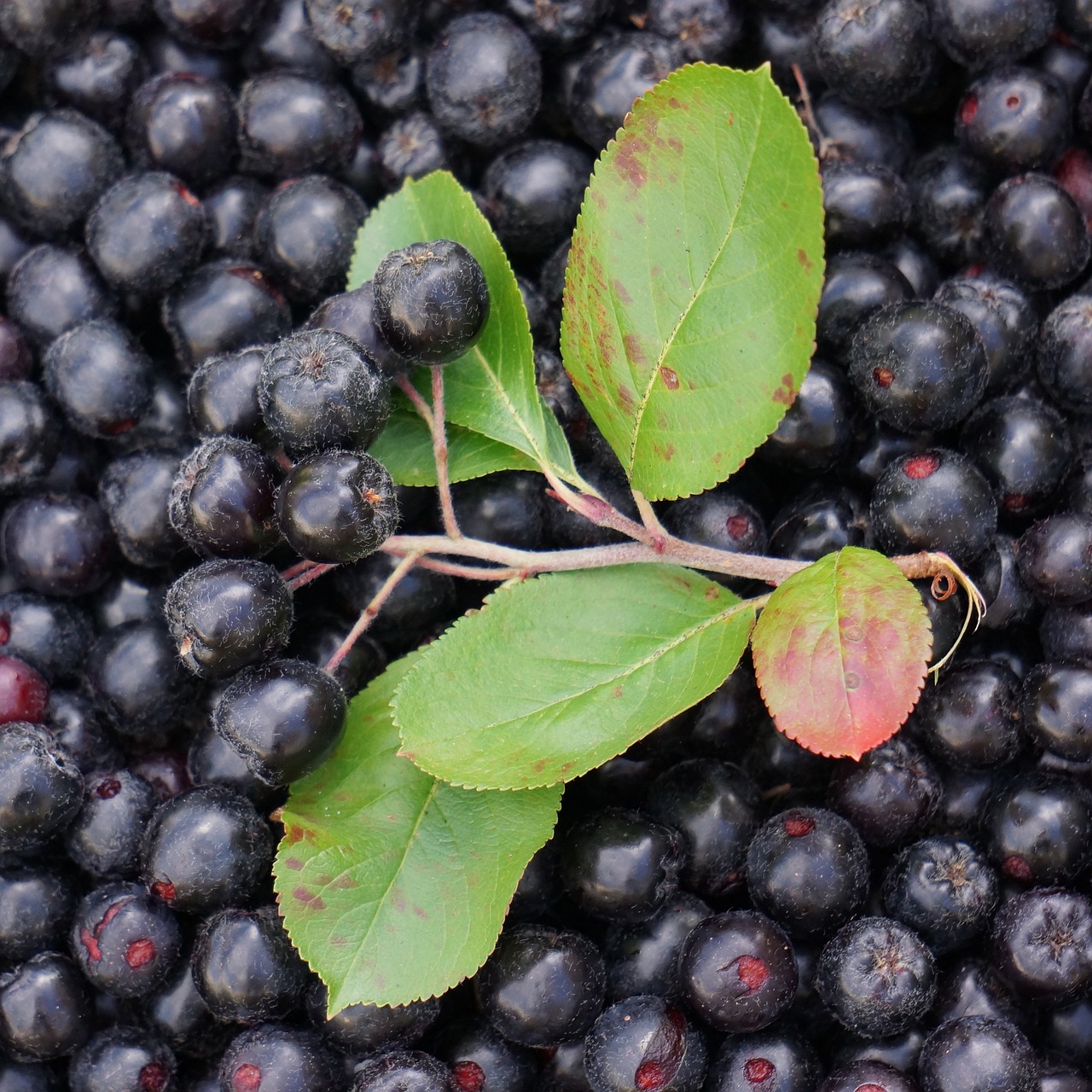Aronia: Grow Your Own Superfood Berries | Easy Cultivation Tips
Antony Thilak W |
24 May, 2023 |

In recent years, the demand for nutrient-rich "superfoods" has soared as people seek ways to enhance their well-being and nourishment. Among the rising stars in this category is the aronia berry, a small yet powerful fruit packed with antioxidants and a range of beneficial nutrients. The great news is that growing aronia berries is simple, enabling you to reap their nutritional advantages right in your own backyard.
Understanding Aronia
Aronia, also known as chokeberry due to its tart and astringent berries, is a deciduous shrub native to North America. These shrubs produce dark purple-black berries and have been used for medicinal purposes by Native Americans for centuries. In recent times, researchers have delved into the potential health benefits offered by this remarkable berry.
The Health Benefits of Aronia
Aronia berries have gained popularity due to their impressive nutritional composition. While low in calories, they are rich in fiber, antioxidants, and other valuable compounds. Here are some key health benefits of aronia:
1. Antioxidant Properties: Aronia berries are among the most antioxidant-rich fruits and vegetables. Antioxidants shield cells from damage caused by free radicals, which are molecules that contribute to oxidative stress. By incorporating aronia and its antioxidants into your diet, you can safeguard your cells, reduce the risk of chronic diseases, and mitigate inflammation.
2. Anti-inflammatory Properties: In addition to their antioxidant prowess, aronia berries possess anti-inflammatory properties. Chronic inflammation is associated with several health conditions, including heart disease, diabetes, and cancer. The anti-inflammatory compounds in aronia can help reduce inflammation, promoting overall well-being and lowering the risk of chronic diseases.
3. Immune Boosting Properties: Aronia berries are abundant in vitamin C, an essential nutrient for optimal immune function. Vitamin C acts as a potent antioxidant, safeguarding cells and facilitating various bodily processes such as collagen production, iron absorption, and maintenance of healthy skin. By incorporating aronia and its vitamin C content into your diet, you can fortify your immune system and enhance your overall health.
4. Cardiovascular Health: The antioxidants and anti-inflammatory compounds present in aronia berries also contribute to improved cardiovascular health. Studies indicate that consuming aronia berries may lower blood pressure, reduce cholesterol levels, and enhance blood flow. These effects can significantly reduce the risk of heart disease and stroke.
5. Digestive Health: Aronia berries are beneficial for digestive health due to their high fiber content. The fiber aids in promoting regularity and preventing constipation. Furthermore, the anti-inflammatory properties of aronia contribute to reducing gut inflammation, thus improving digestive health and lowering the risk of gastrointestinal issues.
Growing Aronia
If you're interested in cultivating your own aronia berries, you'll be delighted to know that they are easy to grow and require minimal maintenance. Aronia shrubs are hardy plants that can thrive under various growing conditions. Here are some essential tips for successful aronia cultivation:
1. Choose a Sunny Location: Aronia shrubs prefer full sun, although they can tolerate partial shade.
2. Optimal Soil Conditions: Plant aronia shrubs in well-drained soil that is moist. If your soil is heavy or clay-like, consider improving drainage by adding compost or organic matter.
3. Proper Spacing: Space aronia shrubs at least 6 feet
apart as they can grow up to 6 feet tall and wide.
4. Regular Watering: Aronia shrubs thrive with consistent moisture, particularly during the growing season. Water them regularly, especially in hot and dry weather conditions.
5. Pruning Guidelines: Regular pruning is essential to maintain the shape and promote the healthy growth of aronia shrubs. Prune them in late winter or early spring before new growth begins.
6. Harvesting: Aronia berries are ready for harvest in late summer to early fall. Ripe berries will be dark purple-black. It's important to harvest them promptly as they do not store well.
7. Pest and Disease Control: While aronia shrubs are generally resistant to pests and diseases, it's wise to monitor them regularly for any signs of potential problems.
In summary, aronia berries are a nutritional powerhouse and a superb addition to any diet. Growing them in your own backyard is a rewarding and straightforward endeavor. By following these simple cultivation tips, you can enjoy an abundance of fresh, homegrown aronia berries enriched with antioxidants and other beneficial compounds. Consider exploring farmlands for sale near bangalore if you're seeking a larger space to establish your own farmhouse and embark on the journey of self-sufficiency and healthy living.
